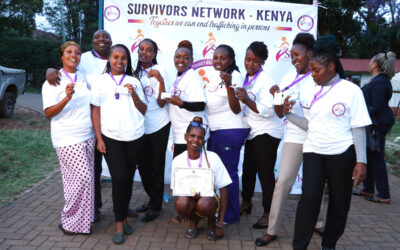Today marks the five-year anniversary of SB 657, a landmark California law to combat human trafficking. Our friends at KnowTheChain are marking the anniversary by expanding and retooling their website to help companies improve corporate transparency and responsible supply chain management practices.
KnowTheChain was originally created to document corporate compliance with the California Supply Chain Transparency Act (SB 657). This trailblazing law required major companies doing business in California to disclose what they are doing to eliminate slavery in their product supply chains.
SB 657 has successfully made consumers, investors, companies, and governments aware of the existence of forced labor abuses in corporate supply chains. SB 657 also started a legislative trend with new supply chain transparency laws and regulation emerging in the United States, Great Britain, and European Union.
However, among the 500 companies reviewed by KnowTheChain, almost half did not disclose under all five requirements of the California law, and 29 percent did not provide any disclosure statements, KnowTheChain says. Because of disclosure inaction by the California Attorney General, there is no information publicly available on which corporations are subject to SB 657, KnowTheChain says. KnowTheChain was able to identify 19 percent of an estimated 2,600 companies that were approached by the Attorney General about the law.
Because of this, KnowTheChain is expanding today from a focus on compliance with a single transparency law in one state (SB 657) to a resource that looks at transparency and responsible supply chain management practices more broadly. The new website offers a wider range of practical resources and insights to help companies and investors address forced labor within their supply chains.
“Forced labor is a well-documented problem in the supply chains of global businesses around the world. Companies without effective policies and practices may be contributing to the exploitation of people unknowingly,” said Killian Moote, Director of KnowTheChain. “We are expanding to be a resource that can increase understanding and action by companies on these issues. We believe corporations have an opportunity to meaningfully contribute to the eradication of forced labor in their supply chains.”
Founded by Humanity United in 2013, KnowTheChain is maintained in partnership with the Business & Human Rights Resource Centre, Sustainalytics, and Verité. Free the Slaves is a founding support organization for the project.
Learn more about Free the Slaves work to promote greater corporate transperancy and accountability in our Slavery-Free Commerce webpage.



